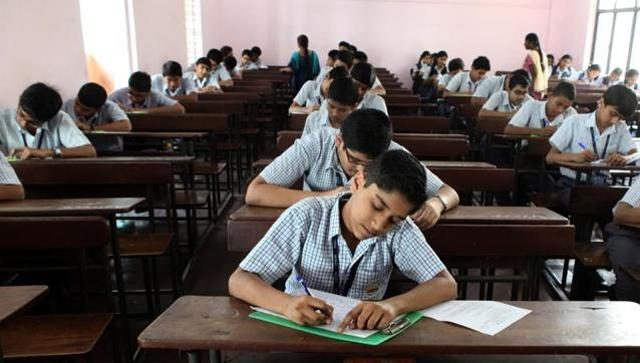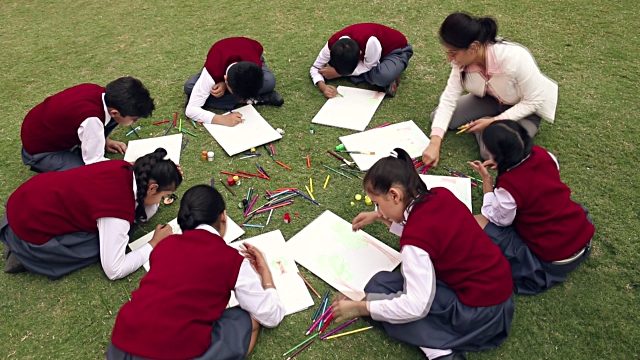Ever wondered how you passed exams in school even though you did not know anything? You probably thanked heavens for it, but it was probably because of India’s judiciary.
There is a “no-detention policy” as a part of the Right to Education Act that has made it mandatory for schools to pass students in any case, even if they are in class five, and do not know how to spell an airplane. This act was passed when the UPA government was in power.
But the power structure changes, and with it changes our life.
Now the “no-detention” policy (#PassingStudentsSince2009) has been put under the scanner by the HRD ministry. The Central Advisory Board of Education (CABE) sub-committee has recommended that be policy should be reviewed.
This call has come after reports of falling standards among schoolchildren. Certain surveys have found that students studying in the government run schools in sixth grade cannot even read properly.
The CABE sub-committee chairman, Punjab Education Minister Daljit Singh Cheema, said that the committee has recommended pre-primary classes in primary schools to improve the level of students belonging to government schools.
“Besides this, the committee also recommended the reviewing of ‘No Detention’ till eighth standard, apart from commencing fifth and eighth standard exams independently as was the case earlier,” Cheema said.
Does it not make you think about how flawed India’s education system really is? To provide education to all, schools have stopped failing people till eighth standard. Deriving benefit from this, the ones who are not really interested in the monotonous regime of school (and subjects which are offered to them without providing any options) have stopped paying heed to it. Those who think their grades matter put their heart and soul into it; others put their mind to not do anything and ‘chill’ in life.
Instead of making the way of teaching interesting enough so that even the most fidgety student can learn, detentions would be given way to, so that it can ruin one entire year of the students. They are ruining it themselves, you say?
Let us look at the pros and cons of the ‘no-detention’ policy:
| PROS | CONS |
| · Students are able to cope up with the stress of school more easily. | · The concept of reward and punishment which encourages a student to learn is negated. |
| · Along with academics, students can handle co-curricular activities as well. | · Deteriorating academic standards. |
| · They can focus on their interests. | · Makes students lethargic. |
| · Makes more space for the increasing population trying to receive education. | · Does not enable them to be competitive and mature enough to handle failure. |
If you think about it, the no-detention policy is for the betterment of an individual. What about a student who is not interested in math or science? I agree that basic level of knowledge of every subject is necessary. But, what about art, music, sports? Why is intelligence still related to succeeding in academics, and not co-curricular, when it is a fact that academics and co-curricular activities are equally important to survive in life?
To sum it up, in my opinion, the no-detention policy is as benefitting for the individual, as it is bad for the State.
Let’s wait for the HRD Ministry’s verdict. Any guesses what it would be?
Other Recommendations:
http://edtimes.in/2016/08/malvika-joshi-to-join-mit-and-it-was-not-because-of-her-marks/
http://edtimes.in/2016/08/solar-powered-virtual-school-set-up-in-a-village-near-kolkata/
http://edtimes.in/2016/09/this-delhi-couple-left-city-life-to-become-farmers-home-schooled-their-kids/





































